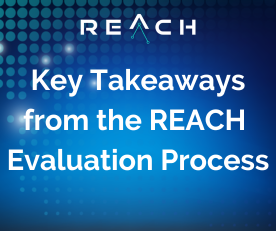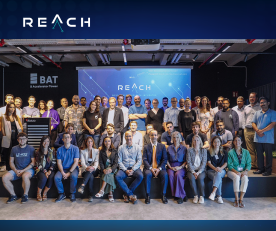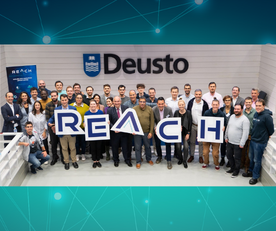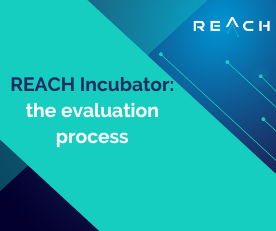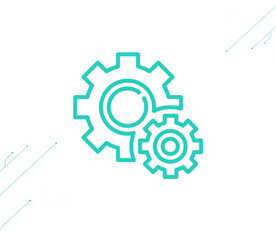Data Value Chains (DVCs) to drive Europe’s Data Economy
The smart use of data can have a transformative effect on all sectors of the economy and create new opportunities for economic growth, to both the small and medium-sized enterprises. From medical care to environment, optimal use of data can also help us address many societal challenges. Data is also the basis for developing Artificial Intelligence applications, which processes vast amounts of high-quality data in order to deliver unprecedented value.

The value of the data economy of EU27 was almost €325 billion in 2019, representing 2.6 % of GDP. The same estimate predicts that it will increase to over €550 billion by 2025, representing 4% of the overall EU GDP¹. Europe is aware of this potential and is making steps towards the Data Economy by creating a solid base of data-driven companies, data workers and creating awareness in European citizens and companies about the socio-economic benefits of the data economy across a number of sectors.
These steps remain however isolated initiatives, and society and industry are yet to reap the benefits of the large-scale deployment of data-based products and services. Success cases of multi-stakeholder value chains where several economic actors create, share and exploit data – the so-called Data Value Chains (DVC) – need to be demonstrated and empowered.
“Data Value Chains (DVCs) can be defined as a multi-stakeholder data-driven business model where data is securely exchanged among parties, either persons or organisations, with the aim of creating value for all involved stakeholders.”
Within a DVC, the data lifecycle occurs among different stakeholders. Data is generated, collected, analysed and exploited by different partners. However, organizations struggle with exchanging data between systems internally, but even more so when data must be exchanged with ecosystem partners. Avoiding the “Silo-effect”, i.e., promoting shared data with external digital ecosystem, has to be tackled through secure, controlled and efficient sharing of data between different organizations. Therefore, the following preconditions must be observed to realize DVCs:


Data governance is a collection of processes, roles, policies, standards and metrics that ensure the quality and security of the data used across a business or organization: who can take what action, upon what data, in what situations, using what methods.
Data sharing, i.e., transactions in which data held by the public or private sectors are made available to other organisations for use and re-use. Data sharing can happen in exchange for payment (or other reward) or for free, and its success depends on practices, technology, cultural elements, and legal frameworks.
Security and Trust. EU is protecting trust in the data economy by successfully deploying the General Data Protection Regulation (GDPR), achieving greater harmonization across the EU and reducing the administrative burden on businesses.
Supporting pilot projects and innovation spaces for experimenting with data innovation and observing the above principles is paramount. In personal data innovation, the EU must take its opportunities to stimulate innovation in solutions and sectors of immediate impact such as healthcare, in full compliance with data protection legislation. In non-personal data innovation, as part of the Digitising European Industry 4.0 initiative, the Commission has already taken action to support industry, among other things by giving financial assistance to industrial data platforms and innovation hubs under the Horizon 2020 programme.
The involvement of SMEs is of utmost importance for the success of this ecosystem, supporting their business and opening new opportunities for their growth. However, according to the Europe Data Market Study, “there is a widespread lack of awareness of the potential benefits of data-driven innovation, particularly among SMEs. Greater awareness of successful business cases would give a boost to take-up growth”.
REACH is addressing the challenges of data sharing, governance, and reuse across multi-stakeholder actors in data value chains. On one hand, it is connecting data corporations with innovators. On the other hand, it is engaging with DIHs, envisioning to develop data value-chains and connect these with innovators, to create new value-added services. This ecosystem will enable the creation and experimentation with Data Value Chain by providing:
- Access to data value-chains from different sectors. REACH has engaged 9 data providers, coming from public and private sectors, who have interest in creating value chains based on data sharing.
- Access to digital skills for Big Data, Data Value Chains, Trusted and Secure Data Sharing. DIHs will provide expertise through their competence centres. Data mentoring services will be available for companies to help develop their experiments.
- Technological bricks for secure and trusted data value chains. These include blockchain, data anonymisation and minimization components and tools for the development of trusted-by-design applications. This allows companies to increase the digital trust in their products, increasing their readiness to market.
- Big-data Computing infrastructures. REACH can provide ready-to-use data analytics infrastructure for development and testing of data-fuelled solutions. REACH big data analytics tools can ease your development and accelerate the building of your MVP (Minimum Viable Product).
- Access to private investment. A network of corporate and private investors will be engaged in the end of the incubation process which will open up a possibility for investment in promising companies with great go-to-market and growth potential.
For more information on each of these benefits, please visit the REACH Resource Hub.
Related posts
Key Takeaways from the REACH Incubator Evaluation Process
REACH Incubator has finally come to an end. As we close this chapter, we take a moment to contemplate the outcome of three years of committed work within the REACH Incubator project.
REACH Incubator Ultimate Pitch Battle: Celebrating Innovation and Success at Slush
The recent REACH Incubator Ultimate Pitch Battle held at Slush proved to be an exhilarating showcase of groundbreaking entrepreneurial spirit and innovation.
6 startups earn their ticket to the final phase of the programme
10 startups traveled to Bilbao, Spain, for the 2-day pitching battle, out of which 6 got to move on to the final stage of the incubation programme.
It may be 2023, but we still need to talk about the gender gap in STEM.
As we are approaching International Day of Women and Girls in Science we spoke to Dr Sarah Gallacher, Co-Founder and Engineering Lead at REACH Round 2 winner Urban Data Collective about what it is like for females working in STEM.
Tips & tricks for a successful application
REACH Incubator has successfully incubated 64 big data innovators. We are now looking for the next batch of big data startups to join the programme!
Find out who are the Round 2 startups moving on to the final EVOLVE Phase
10 startups traveled to Bilbao, Spain, for the 2-day pitching battle. Only 5 got to move on to the final stage of the incubation programme.
REACH Incubator lifts the veil on its evaluation process
At REACH Incubator transparency and trust is taken very seriously, and this is why we would like...
The REACH Toolbox – what exactly is that?
The growth of the European Digital Single Market is being accelerated thanks to the launch of next generation data incubators, such as REACH.
Tips & tricks for a successful application
You are the next generation data innovators! REACH Incubator would love to help you out and see you among our 30 selected startups to join the Round 1 incubation. However, it is up to you…
REACH startup Cropt becomes the Incubation Round 1 winner!
The top 5 Round 1 finalists flew all the way to Helsinki for a day full of high emotions to fight for the winning spot! The final Round 1 Demo Day took place physically at a side…

